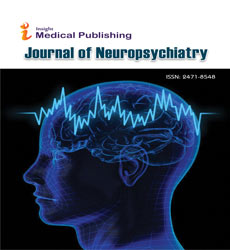Abstract
The Link between Alzheimer Disease and Sleep Quality
Sleep problems are common in institutionalized elders and are associated with increased mortality and morbidity. Recent research has proved that sleep disturbances and circadian rhythm have been related to the pathophysiology of Alzheimer's disease and would influence the progression of the pathology and lead to both cognitive and noncognitive disabilities. We look at the current research that supports the idea that the lack of sleep relates to cognitive disorders and dementia, with an emphasis on Alzheimer's disease. We integrated multitude possible mechanisms of sleep deprivation leading to Alzheimer’s disease and cognitive decline. The role of neuroinflammation, circadian rhythm and sleep disturbances play a basic role in tau generation and Aβ deposition. An approach to manage sleep changes can widely prevent and delay the cognitive decline of Alzheimer’s disease. This review brings together the various possible mechanisms of how sleep disorders can lead to cognitive dysfunction and how the nonpharmacological treatment can delay the progression of sleep dysfunction in older patients.
Author(s):
Abstract | Full-Text | PDF
Share this

Google scholar citation report
Citations : 37
Journal of Neuropsychiatry received 37 citations as per google scholar report
Abstracted/Indexed in
- Google Scholar
- China National Knowledge Infrastructure (CNKI)
- Secret Search Engine Labs
- Euro Pub
Open Access Journals
- Aquaculture & Veterinary Science
- Chemistry & Chemical Sciences
- Clinical Sciences
- Engineering
- General Science
- Genetics & Molecular Biology
- Health Care & Nursing
- Immunology & Microbiology
- Materials Science
- Mathematics & Physics
- Medical Sciences
- Neurology & Psychiatry
- Oncology & Cancer Science
- Pharmaceutical Sciences

